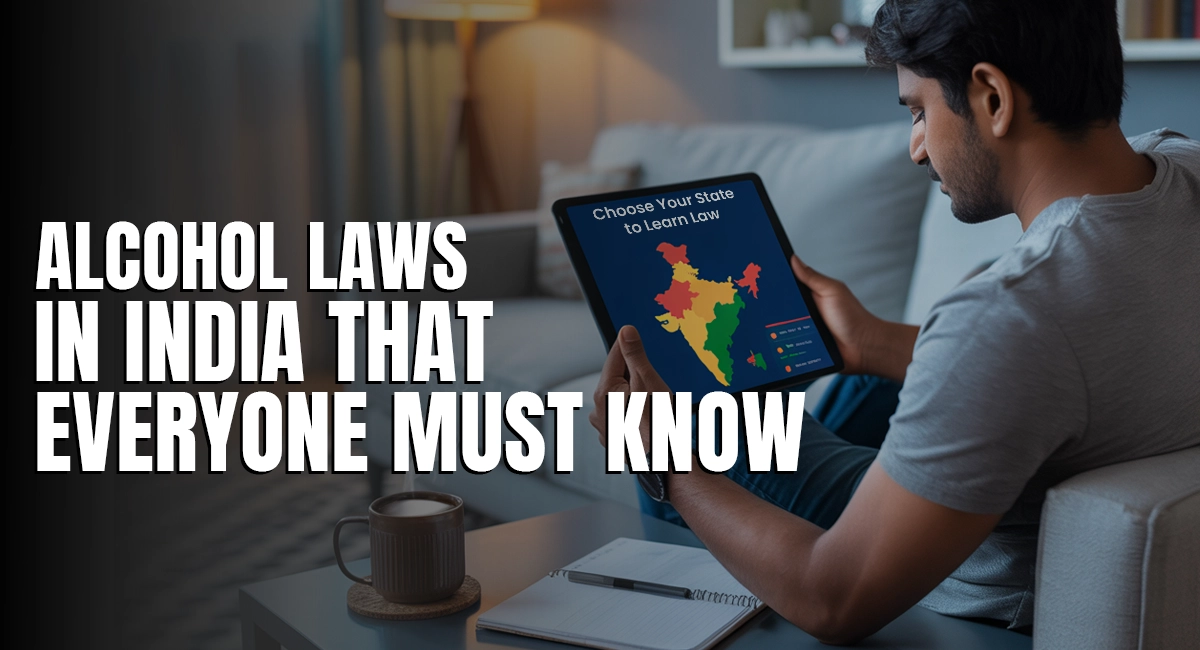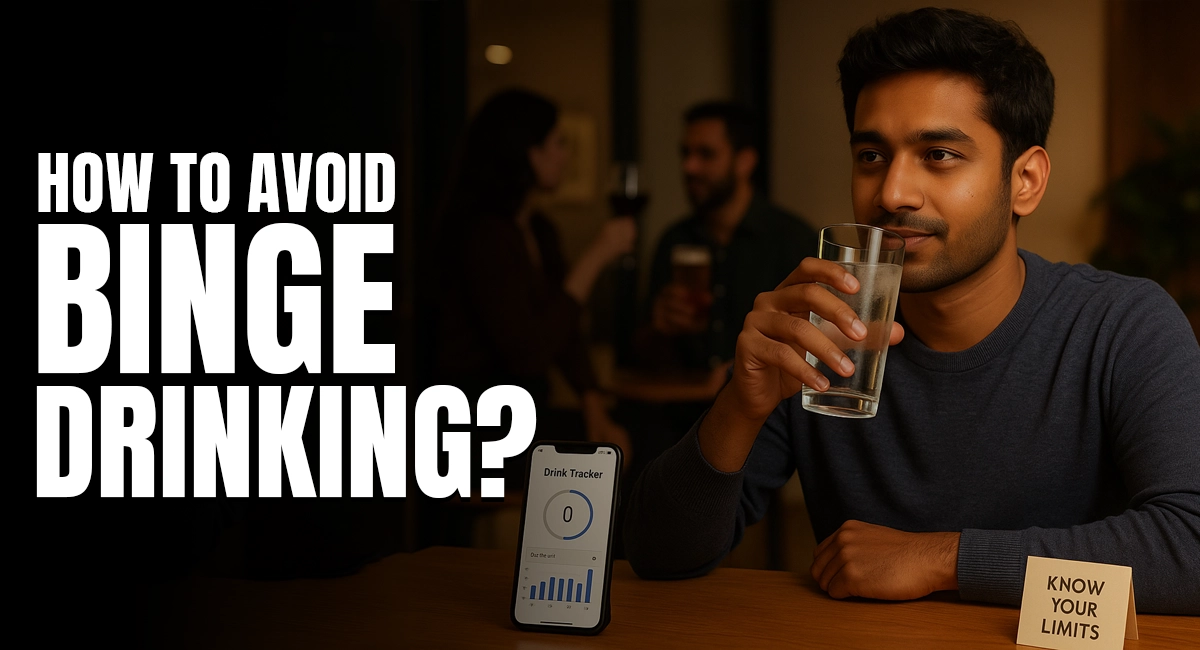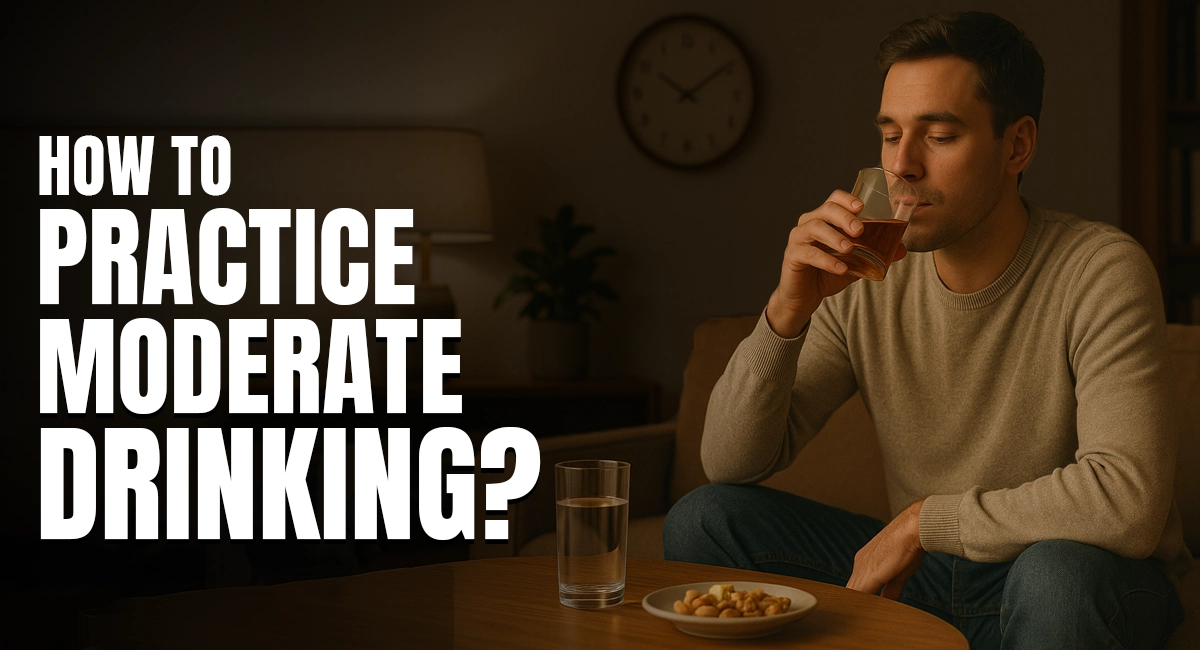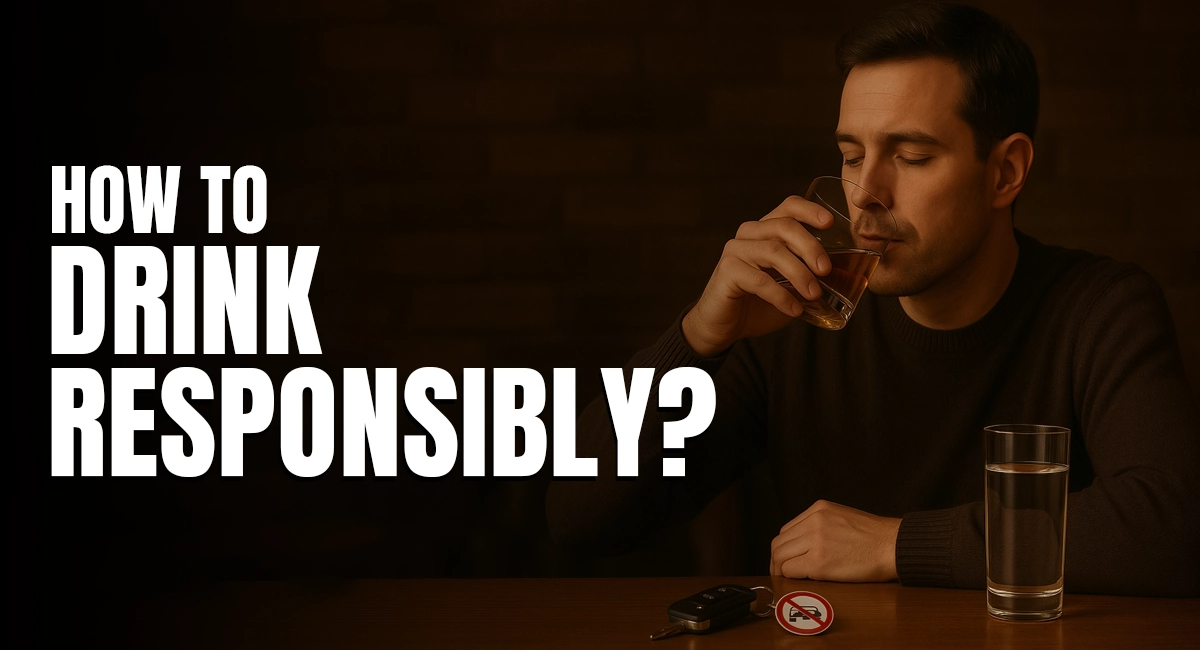What is Binge Drinking & How to Avoid It?
Binge drinking is often portrayed in movies and social settings as harmless fun—a way to let loose, celebrate, or forget stress. But beneath this casual portrayal lies a dangerous pattern or sign of alcohol consumption that can lead to serious health, social, and psychological consequences. Understanding what binge drinking is, why people do it and how to avoid it is essential in promoting healthier choices and safer and healthy lifestyles.
What is Binge Drinking?
Binge drinking refers to consuming a large quantity of alcohol within a short timeframe, usually enough to increase the blood alcohol concentration (BAC) to 0.08% or higher. According to health authorities:
- For men, binge drinking is generally defined as drinking 5 or more standard drinks within about 2 hours.
- For women, it is defined as 4 or more drinks in the same time frame.
A standard drink usually contains about 14 grams of pure alcohol, which is found in:
- 350 ml of beer (about 5% alcohol)
- 150 ml of wine (about 12% alcohol)
- 44 ml of distilled spirits (about 40% alcohol)
Binge drinking is not just about how much someone drinks, but how quickly they drink it.
Why Do People Binge Drink?
Binge drinking occurs for a variety of reasons, many of which are deeply rooted in culture, peer influence and personal stress. Common triggers include:
1. Social Pressure
Many people feel compelled to keep up with peers during parties or gatherings, often drinking more than they intended.
2. Stress Relief
Some use alcohol to escape from anxiety, work pressure, emotional distress, or relationship issues.
3. Celebration Culture
In many cultures, alcohol is closely tied to celebration and milestones, leading to overconsumption during weddings, birthdays, festivals, or holidays.
4. Low Awareness
People often underestimate how much they are drinking or are unaware of what constitutes a binge.
5. Alcohol Tolerance
Regular drinkers may not feel intoxicated after a few drinks, pushing them to consume more in a short period.
The Risks and Consequences of Binge Drinking
Though often brushed off as a one-off or casual behaviour, binge drinking carries significant risks:-
1. Physical Health Risks
- Liver damage (fatty liver, hepatitis, cirrhosis)
- Heart problems (high blood pressure, irregular heartbeat)
- Alcohol poisoning, which can be fatal
- Gastrointestinal issues, ulcers and pancreatitis
2. Mental and Emotional Impact
- Worsening anxiety and depression
- Increased risk of memory loss and the cognitive decline
- Poor sleep quality and mood swings
3. Risky Behaviour
- Drunk driving
- Unsafe sexual behaviour
- Violence or aggression
- Accidental injuries (falls, burns, drowning)
4. Long-Term Dependency
Frequent binge drinking may lead to dependence on alcohol or Alcohol Use Disorder (AUD) a chronic disease that requires long-term management.
5. Social and Legal Consequences
- Strained relationships
- Job or academic issues
- Arrests or fines for public intoxication or drunk driving
How to Recognize Binge Drinking Patterns?
It’s not always very easy to identify binge drinking, especially if it’s normalized in a social circle. Signs may include: -
- Drinking to get drunk, not for taste or enjoyment
- Regularly exceeding the drink limit in social situations
- Blacking out or having memory lapses
- Engaging in risky behaviour while drinking
- Feeling guilty or regretful after drinking sessions
Tips to Avoid Binge Drinking
Avoiding binge drinking doesn't mean avoiding alcohol entirely (unless that’s your personal choice). It means being mindful and setting boundaries. Here are some effective strategies:
1. Know Your Limits
Understand how much alcohol your body can handle. Stick to recommended guidelines—no more than 2 drinks per day for men, and 1 drink for women.
2. Pace Yourself
Drink slowly. Sip your drink and take breaks. Try having water or non-alcoholic beverages between alcoholic drinks.
3. Eat Before and While Drinking
Food slows down the absorption of alcohol. Never drink on an empty stomach.
4. Set a Drink Limit Before You Start
Decide the limit how many drinks you will have ahead of time and stick to that number. Make it a rule not to go beyond.
5. Avoid Drinking Games
Games like beer pong or shots challenges often encourage fast and excessive consumption. Politely excuse yourself or suggest alternative fun activities.
6. Plan Ahead
Arrange for a safe ride home and let someone you trust know your plans. Avoid putting yourself in unsafe environments where heavy drinking is encouraged.
7. Learn to Say “No”
It's okay to refuse a drink, even if everyone else is drinking and offering. Confidence in your choices often inspires others to be more mindful too.
8. Surround Yourself with Supportive People
Being with people who respect your set boundaries and choices can make it easier to avoid excessive drinking.
When to Seek Help?
If you or someone you know is unable to control drinking habits, blacks out often, drinks daily or shows signs of dependency, it may be time to seek professional help. Resources include:
- Counselling or therapy
- Alcohol recovery support groups (like Alcoholics Anonymous)
- Rehabilitation programs
- Helplines and community health centres
There's no shame in asking for help. Early intervention can prevent long-term health damage and can improve your quality of life.
| Read More: How to Drink Responsibly? |
Conclusion
Binge drinking may seem like a fun way to unwind or connect socially with people, but its risks far outweigh in the short-term enjoyment. The good news is, it’s entirely possible to enjoy social events and celebrate life without overindulging. With awareness, self-discipline, and support, binge drinking can be avoided—and healthier habits can take its place. For more responsible drinking content, keep visiting Boozerscouncil.org.
Make smart choices, respect your body, and encourage others to do the same. Because being in control—not being controlled by alcohol—is where true strength lies.
FAQs on Binge Drinking
1. Is binge drinking the same as alcoholism?
Not necessarily. Binge drinking is basically a pattern of excessive drinking in a short time, while alcoholism involves a physical or psychological dependence on alcohol.
2. Can binge drinking cause long-term damage?
Yes. Even occasional binge drinking can damage the liver, heart, and brain over time and increase the risk of alcohol-related diseases.
3. How can I help a friend who binge drinks?
Be supportive without being judgmental. Always encourage open conversation, express concern, and suggest they seek help if needed.
4. Is drinking only on weekends still binge drinking?
If you consume more than the recommended number of drinks in a short period, even occasionally, it qualifies as binge drinking.
5. Does age affect how alcohol impacts the body?
Yes. Younger bodies may metabolize alcohol differently, but developing brains (especially in teenagers and early 20s) are more vulnerable to damage.
Recent Post
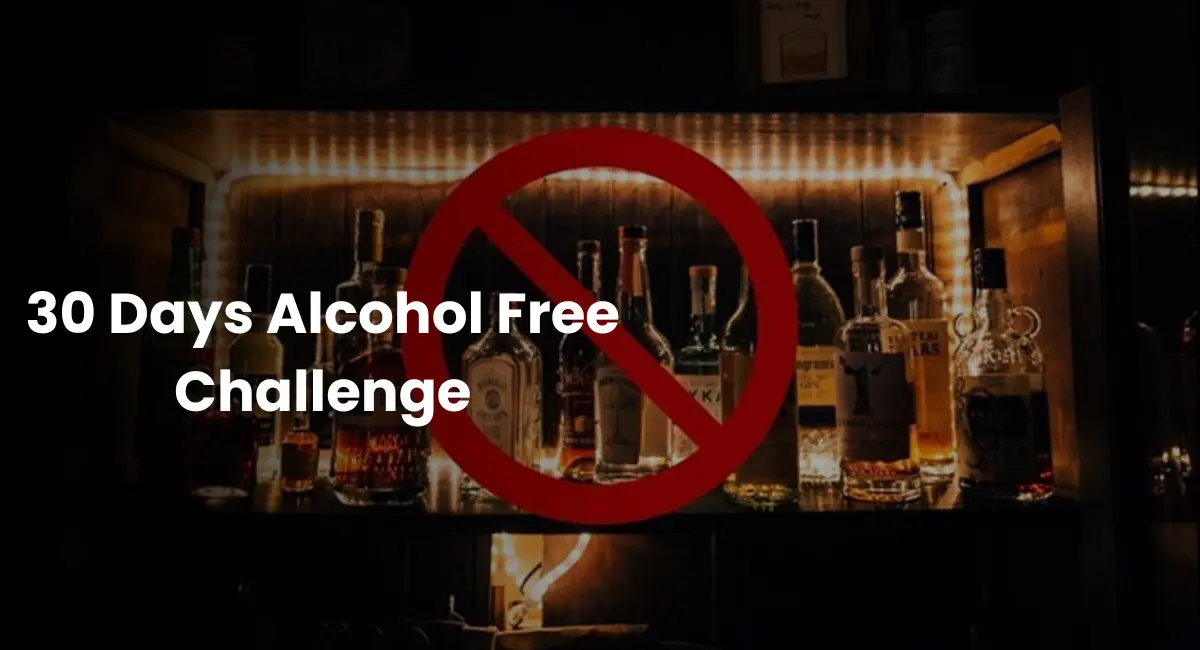
Alcohol-Free Challenge
This challenge isn’t about lifelong abstinence or strict rules; it’s about pausing, observing and understanding how alcohol truly...
December 17, 2025

Role of Schools and Colleges in Alcohol Awareness
This blog explains how schools and colleges can contribute effectively to alcohol awareness in line with widely recognised...
December 15, 2025
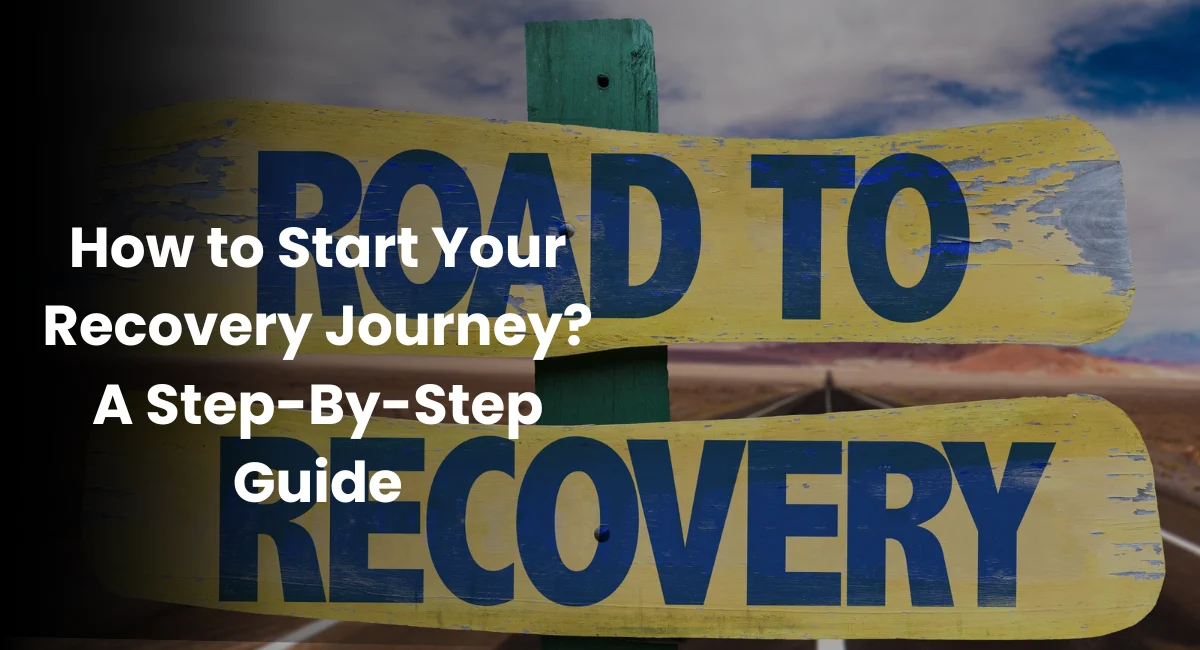
How to Start Your Recovery Journey from Alcohol Addiction
Recovery is a continuous process of healing, self-awareness and growth. With the right mindset, professional guidance and support...
December 09, 2025
Get The Free Quote!
KEEP IN TOUCH
POPULAR POSTS
Alcohol Laws in India
This decentralization results in widely varying legal drinking...
August 14, 2025 • 604 views.Binge Drinking
Binge drinking is often portrayed in movies and...
August 04, 2025 • 335 views.How Stress and Anxiety Can Lead to Unhealthy Drinking Habits
In this blog, we’ll explore how stress and...
October 17, 2025 • 291 views.How to Practice Moderate Drinking
In this blog, we’ll explore what moderate drinking...
August 02, 2025 • 275 views.How to Drink Responsibly
In this guide, we’ll explain and guide what...
July 31, 2025 • 261 views.



